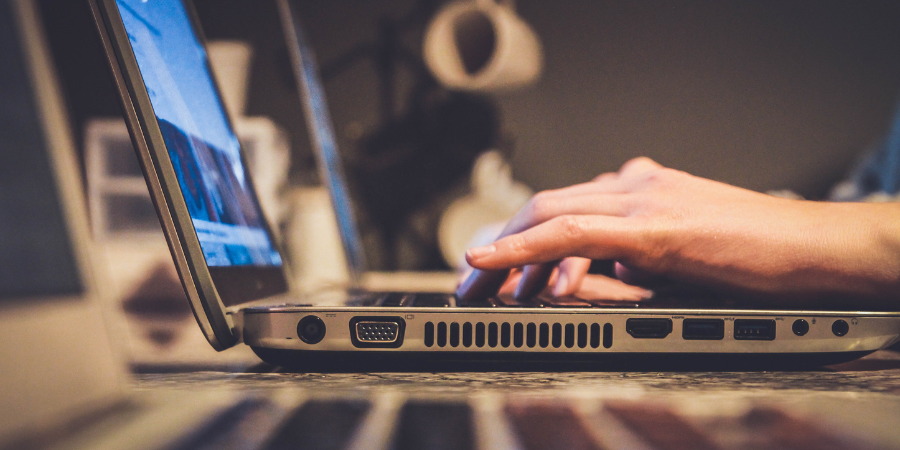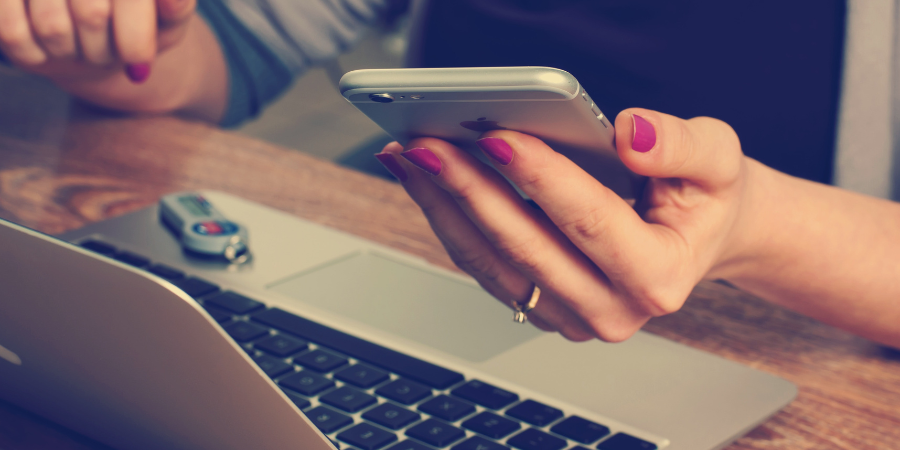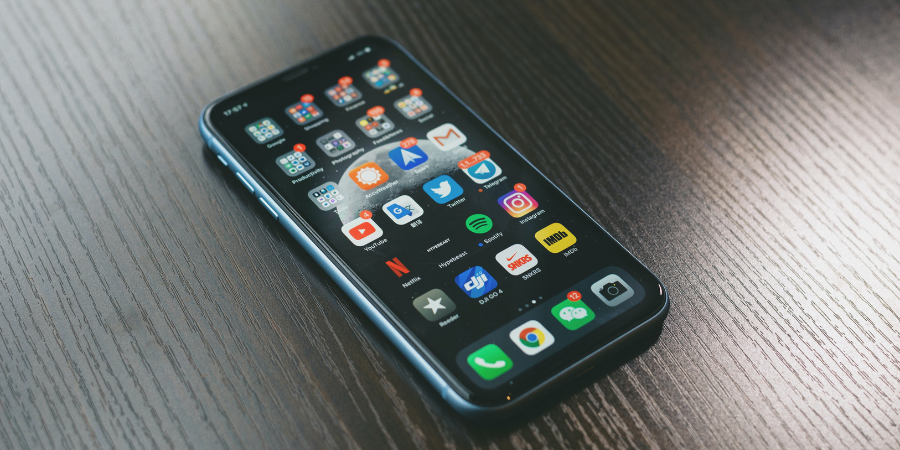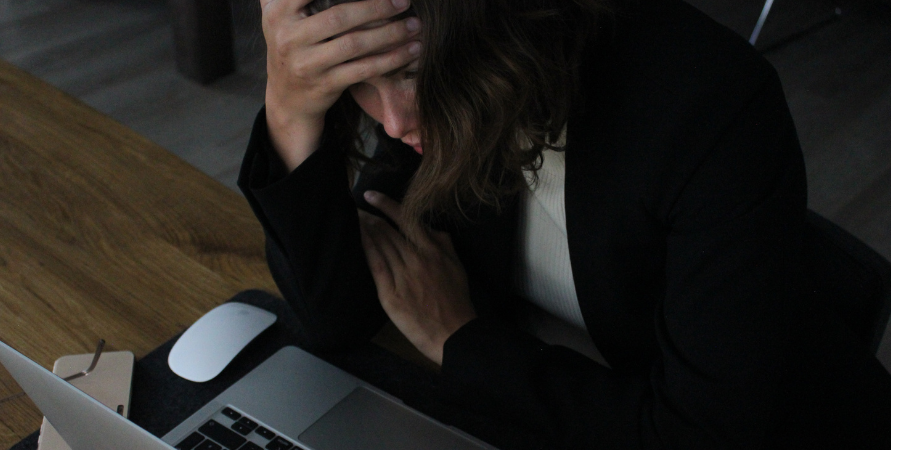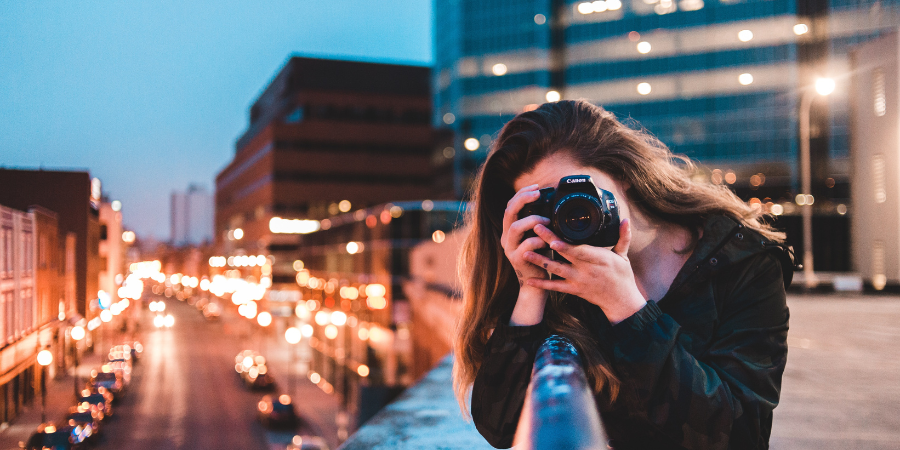
Written by:

Medically Reviewed by:
Last Updated:
August 7th, 2025
Internet Addiction | Definition, Symptoms and Effects
- Select
- Internet addiction
- Internet rehab
Recently, more and more people across the world are developing internet addiction. Over the last decade, the world has seen a sharp rise in technological breakthroughs, and the internet is arguably one of the most striking developments.
Many people use the internet to access various social media platforms. As of 2022, more than half of the world’s population uses social media, and the average daily time spent on a net-working platform is around two and half hours. People from younger generations may be unable to recall what life was like before the internet, which may explain why people between the ages of eighteen and thirty-eight say they feel ‘somewhat’ addicted to the internet.
What is internet addiction?
Internet addiction is a form of behavioural addiction that is characterised as being excessively anxious about accessing various websites and applications, which is spurred on by an intense urge to engage in such networks. As with any form of addictive behaviour, it can get to a point where it is no longer healthy and thus damages an individual’s wellbeing.
Symptoms of internet addiction
Do you spend a lot of time on social media and worry you may be addicted to the internet? Try this test to see whether you need to reach out and get some help for internet addiction.
- I try to hide how much time I spend using social media platforms
- I’m often skipping meals and neglect personal hygiene so I spend more time online
- I make up excuses so I can spend time on my phone or laptop
- I’ve attempted to cut down on time spent on online but found it difficult
- I’ve compromised sleep in order to spend more time on social media
- I neglect previously enjoyed hobbies or activities in order to use social media
- I feel irritable or anxious when I can’t access the internet
- I’ve neglected my job or studies as a result of using the internet
- Social media drastically alters my mood when I use it
If you can relate to any of the above statements then we advise you to reach out and seek some advice and support for internet addiction.
Why do we become addicted to social media?
A healthy dosage of social media can be highly beneficial for us all in many ways. However, when a person becomes addicted to social media and therefore exposed to these forms of interaction in an excessive way, problems can arise.
Another possible reason people become addicted to the internet and social media may be because people are suffering from underlying trauma and using the internet to mask painful feelings. This could be many things, like grief, breakups, lack of social skills in real life, loneliness, unemployment etc. It’s easy to create a carefully curated online persona and live vicariously through that rather than address your underlying feelings.
Furthermore, it may feel relieving to escape into the lives of others, whether they be “influencers” (celebrity status users) or people close to you, as a way of avoiding such emotions.
Negative effects of internet addiction
Let’s take a closer look at the various reasons why people grow addicted to social media sites, how it affects their wellbeing, and what steps they can take to combat social media and internet addiction:
An addiction to dopamine-inducing notifications
Studies have shown that people become addicted to social networking sites. In a similar way, people become addicted to substances and other behavioural addictions- by stimulating the dopamine production in the brain. When our screens illuminate with a notification, whether it be a ‘like’ or comment, our brain receives a surge of dopamine, resulting in feelings of pleasure.
Social media developers understand this effect, which is the driving force behind push notifications; even if someone is not looking at a particular app, our phones entice us to open the application by sending us reminders about the engagement we could be receiving. Our brain’s reward system associates these with feel-good emotions, so we feel compelled to check.
A desire for validation
Many people, especially those from younger generations, admit to feeling anxiety when using social-networking sites, often worrying about how others perceive them online.
For example, someone may post a picture, express an opinion, reveal personal news on social media sites, and then wait on tenterhooks to see if others approve. Receiving lots of ‘likes’ and comments results in a swell of dopamine levels and elation. A person often associates this with social acceptance, an increased sense of self-worth, and confidence. This often reinforces the person to post repeatedly to recreate the original feeling.
On the other hand, if a person’s post received little to no ‘likes’, extreme feelings of panic and disappointment could set it, resulting in the person’s mood drastically diminishing. This may give way to feeling socially unaccepted and cause a drop in their self-confidence. They may begin to post or share even more by means of continually striving for social validation. This is especially concerning given that 43% of teenagers have felt ‘bad’ about themselves if they don’t receive enough ‘likes’.
If ‘likes’ are what make us addicted to social media platforms, then it’s necessary to look at the impetus or the driving force behind them.
Obsession with unattainable beauty standards
Another driving force behind social media addiction could be rooted in an obsession with achieving unattainable beauty standards. Recently, the University of London conducted a study that shows 90% of women have used a ‘filter’ when sharing pictures of themselves (selfies) on social media.
Such filters can drastically alter a person’s appearance by re-shaping their facial features, adjusting their skin tone, or making them appear thinner. Suppose social media users are attracting more dopamine-inducing ‘likes’ from these edited images. In that case, they subconsciously perpetuate the idea of unachievable beauty standards, thus causing a great deal of stress to those viewing their pictures.
Psychologist Jessica January Behr sums up the damaging consequences of this: “When we compare ourselves to the idealised version of others, like those in edited photos, it creates a devaluation of the self.” She goes on to say that these feelings can give way to harmful health consequences like self-criticism, body or facial dysmorphia, or chronic emotional abuse of the self. Furthermore, the pressure to obtain unrealistic beauty standards can escalate into serious health problems such as eating disorders and self-harm.
Social competition and envy
‘Keeping up with the Joneses’ is a notion that existed long before the development of the internet. But given that social media engulfs us with the constant activities and (positive) life updates of others, it’s easy to get enticed by the pressure to perform. Studies show that a quarter of social media users admit to feeling jealous when looking at the posts of others, thus giving way for them to compete with those accounts they feel envious of.
A prime example of this could be a friend posting beautiful holiday pictures, resulting in another friend spending money on an expensive holiday to compete with their social media content. The competition for likes, or rather than search for social approval, can be never-ending; people may share new purchases, new relationships, new pets, etc., to deliver ‘like-worthy’ content.
It’s not hard to see how this type of behaviour can negatively impact a person’s finances and mental health– as social media becomes the root driving force behind their lifestyle choices.
Tips to overcome internet abuse
If you think you may be using the internet too much and applying too much energy to social media in general, you could try adopting some of the following techniques to help you regain control over your scrolling:
Take a digital detox
It may be a good idea to detox – delete social media apps from your phone for the time being. Be sure to give friends and family alternate means to reach you. Although it may seem hard at first, you may feel more energised without it and gain a fresh perspective.
Turn off notifications
Since push notifications can lure us onto social media even when we’re not using it, opt to have the notifications off.
Try a new hobby (away from the internet)
Whether it’s sports, arts, music, puzzles, or photography, try engaging in something new. This will enable you to create real-life connections and increase feelings of accomplishment and self-worth by learning new skills.
Limit your screen time
If you need to respond to messages or want to still interact with friends, try limiting your time on social media, maybe to fifteen minutes a day, say after dinner. Keep this as part of your routine. You can still engage in social media- but on your terms.
Check in with friends and family in real-life
Many people who have lots of followers and social media engagement claim to feel lonely-“liking” a post is not the same as a genuine, warm conversation. Check in with those you care about in real-life.
When to get help for internet addiction
There can be some serious underlying causes for many people with internet addiction, ranging from poor self-image, lack of social skills, loneliness, and various trauma responses. If this applies to you or someone you love, it may be a good idea to seek out professional counselling; you can reach out to us today. Our friendly and supportive staff are here to answer any questions you may have, as we can advise you on how best to receive internet addiction treatment.


